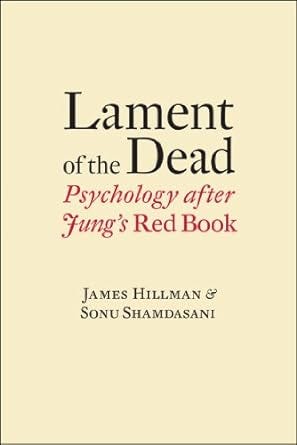Lament of the Dead: Psychology after Jung's Red Book - Excerpt 2
James Hillman and Sonu Shamdasani
JH: The Red Book depicts Jung’s recovery of his soul. But by moving it to anima, which he does later, it becomes like a complex that you can deal with, and you lose some of that personification and what you call the fire.
SS: The term “anima” for Jung then is a makeshift, it’s a sign. He is aware of what he’s trying to evoke.
JH: Yes, no question.
SS: So when he speaks of it one gets the sense of the figural ground, the emotional ground behind it. It’s not purely a concept for him. But with others, who took on these terms without that grounding, it became just conceptual coinage.
JH: It became a complex that hits you and then you have to deal with this complex, integrate it or something.
SS: What is it that from your perspective today strikes you about this book?
JH: The book somehow validated what I felt I was doing all these years without knowing it. I mean, my therapy of myself and my therapy with others, whenever possible, focused on active imagination, dialogues, encounters with figures, and teaching and learning how to deal with figures. So personification seemed to me absolutely the essential activity of the psyche, just as Jung says, or shows, in the Red Book.
What else? He says psyche is image or image is psyche—I never remember which is which, which noun comes first—and I’ve used that all along.69 He says somewhere “stick to the image.”70 He says “dream the myth onward.”71 These are all keys to how to do psychology and how to do therapy. He doesn’t use abstractions in the Red Book. I’ve tried to get rid of a lot of abstractions, such as the unconscious, or the ego, or the ego-self axis—even the word “self”—and to restore the weight of human history, meaning mythology, Greek mythology in particular, but also biblical figures or mythical fairy tale figures. I used the same kind of texts that Jung refers to, not so much gnostic but ancient philosophy. So all of the things that I was doing, and trying to write about, were all there in what Jung was doing in the Red Book. I was engaged with Christianity all along and said that both Freud and Jung had to come to terms with the deep unconscious, which was the weight of Christian history, or the psyche. In the Dream and the Underworld I have a chapter about that,72 and in Inter Views73 I have a chapter about that, and all through Re-Visioning Psychology I’m trying to work through the Christian prejudices. It seemed to me that without knowing it I was doing a parallel work in my own restricted and limited way to what Jung was dealing with in the Red Book.



